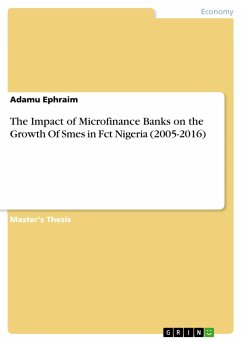This book fills a gap in the field of microfinance
in Jordan. It presents the status of the
microfinance sector, analyzes the role of the
banking system in the microcredit market, examines
the conformity between Islamic banking
and provision of microfinance, investigates the
socio-economic determinants of the borrowing process
and the determinants of credit rationing in loan
markets. This book points out that the banking
sector plays a modest role in the microfinance
market; religious beliefs negatively affect micro
entrepreneurs' involvement in credit markets; there
is no identifiable conflict between provision of
microfinance and the Islamic financing rules;
Islamic microfinance institutions do not really
exist in Jordan. Moreover, the socio-economic
variables were found to affect lenders' and
borrowers' behaviours.Credit rationing was found to
be problems for some borrowers, but not for the
majority. Finally, no discrimination against a
subgroup of borrowers was identified.
in Jordan. It presents the status of the
microfinance sector, analyzes the role of the
banking system in the microcredit market, examines
the conformity between Islamic banking
and provision of microfinance, investigates the
socio-economic determinants of the borrowing process
and the determinants of credit rationing in loan
markets. This book points out that the banking
sector plays a modest role in the microfinance
market; religious beliefs negatively affect micro
entrepreneurs' involvement in credit markets; there
is no identifiable conflict between provision of
microfinance and the Islamic financing rules;
Islamic microfinance institutions do not really
exist in Jordan. Moreover, the socio-economic
variables were found to affect lenders' and
borrowers' behaviours.Credit rationing was found to
be problems for some borrowers, but not for the
majority. Finally, no discrimination against a
subgroup of borrowers was identified.








